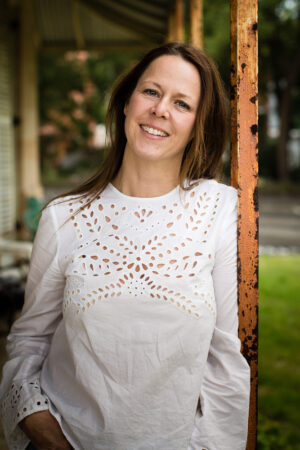Three Important Considerations
As a mental and family health advocate and a parent who has supported my daughter through recovery from an eating disorder, I am often asked, “How can I help my child with their body image?” Sadly the parents who do approach me have often waited to speak up about their concerns until their child’s thinking and resulting behaviour is becoming problematic. The reluctance to talk about mental health concerns openly partly stems from the fear that grips parents as they see something unhealthy happening; a sort of denial. Another aspect of their reluctance also comes from the fact that as parents we are not immediately experts on all health matters so some patterns of thinking and behaviours go unnoticed until they start to interfere with daily life. Another part of this reluctance jigsaw is despite the contemporary push for ‘normalising’ conversation around mental health, our networks can still be judgmental and ignorant, making their responses unhelpful, leaving worried parents feeling even more anxious and isolated than before. To get through our times of difficulty we all need our herd of elephants to support and be strong for us. After all it takes a village to raise a child; you know it does.
So these following Top three tips are for everyone, parents and supporters, whether you be the child’s teacher, coach, family friends or neighbour, you can help it growing a culture and a framework that is supportive, nourishing and caring:
- Never comment on bodily appearances, particularly in front of young children. How does a 7 year old think to even say, ‘I am fat/skinny/chubby/blobby/scrawny’? They have heard these words used in judgment and so they are holding a mirror up and reflecting back. Just stop these comments please! There is no need to validate a child by saying “You’re so skinny – lucky thing!” Or “I shouldn’t have eaten that cake I feel fat.” These daily throw away comments are so damaging and send the message that a person’s worth is by their appearance and size.
- Always try to role model body positivity. Be brave and take on physical challenges; if you’re a couch potato, go for a walk with your child. If you are always glammed up to the nines in the latest apparel from your favourite designer then pull on some old trackpants and have a run round the park, or just hang out. Sending the message that perfection is not the goal and that anyone can give things a go takes the fear out of trying to get outside and use your body without shame or vanity is a good thing to do. Allowing yourself to try new sport skills, to be able to go out without makeup, to dress comfortably, to be unashamed about your appearance is such a healthy message to give your child.
- Less looking in the mirror, less checking selfies, less commenting on photos, more encouraging and praising other aspects of a person, kindness, bravery, tolerance, thinking skills, sticking-with-it powers etc.
Furthermore, if you have concerns that your child is focusing negatively on their body or parts of their body it is important not to dismiss them. By this I don’t mean getting drawn into the reassurance trap or arguing against their concerns. What I mean is that you need to listen to what they are saying so that they feel understood and then validate their feelings, stepping away from specific focus on negative self-image to a broader outlook. Acknowledge that their feelings must be hard for them. Ask them to share what is causing these thoughts. Perhaps someone has teased them at school, or the school uniform is not comfortable for them; I remember my own school days with the dreaded gym skirts we were forced to wear, it was hard not to feel vulnerable and self-conscious. If there is something like body-shaming going on or coercive behaviour and peer pressure then talk to your child’s teacher or to other parents to get a sense of what is happening.
For concerns and specific information regarding eating disorders of all kinds (and there are a number of these) then do reach out to Butterfly. Butterfly Foundation is the national charity for all Australians impacted by eating disorders and body image issues, and for the families, friends and communities who support them.

Elizabeth Mary Cummings
Elizabeth is a writer and educator working in the family mental health sector. Born in Manchester, educated in Scotland and have lived in Australia and New Zealand for many years. Elizabeth graduated from Edinburgh University in Scotland in Psychology before training as a primary school teacher. Her stories often take a child’s perspective to explain the world and reflect on important life experiences including themes of resilience, grief, equality, the natural environment, kindness, empowerment, anti-bullying and mental health. Elizabeth’s first book, ‘The Disappearing Sister’, has gained attention for its simple explanation of eating disorders aimed at supporting siblings and families of sufferers. Elizabeth regularly speaks at schools, literary events, clinical conferences on mental health matters. Her areas of interest include mental health, trauma and social justice. She heads up Literary Lived, building community knowledge about tough life experiences, supporting those who are going through difficult times.









